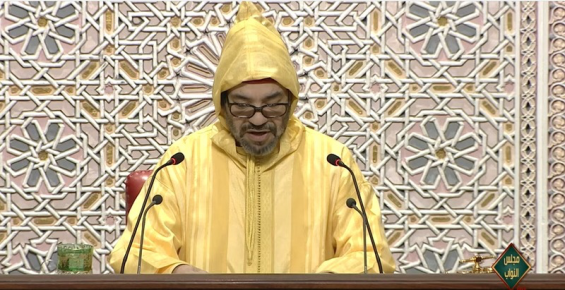On Wednesday, January 17, Morocco commemorated the 60th anniversary of its first elected Parliament. To mark the occasion, a symposium was held in Rabat and attended by foreign delegations. The event featured a reading of King Mohammed VI's message addressed to participants, delivered by House of Representatives president Rachid Talbi Alami.
While acknowledging the «high level of maturity» achieved by Morocco's representative institutions, the King reiterated his call for moralization of the political scene. «Despite the progress made, it is vital to redouble efforts for institutional representative democracy to rise to the level we wish for it, and which would do honor to Morocco», he stated.
Fulfilling this ambition, King Mohammed VI says, requires «the adoption of a legally binding code of ethics for the two Chambers of the legislative institution».
Moving beyond calls, King Mohammed VI orders action
This royal order for a parliamentary code of ethics arrives at a crucial juncture when roughly twenty deputies and advisors face legal charges ranging from mismanagement of public funds to embezzlement and drug trafficking. They are either out on bail or imprisoned.
This list, however, only covers members of Parliament. Notably, several municipal presidents have also faced legal proceedings or dismissal by the Ministry of the Interior. In 2022 alone, the Interior Ministry dismissed 18 presidents and 30 vice-presidents for conflicts of interest. Additionally, the Constitutional Court has removed some parliamentarians from their seats and triggered by-elections in certain constituencies.
The escalating scale of these issues casts a shadow on Morocco's aspirations to become a «model of parliamentary democracy» in Africa. This «soft power» facet of the Kingdom risks being tarnished by the multiplying trials and scandals.
It is worth noting that King Mohammed VI has previously made similar calls for ethical reform, including his August 2011 speech advocating for «measures to moralize political and parliamentary life». He reiterated this message on October 13, 2020, during the opening of the parliamentary year, stating that «the moralization of the electoral process [...] can allow an elite imbued with the virtues of dedication to the service of the State and public service, rectitude, and honesty to emerge and take responsibility for managing public affairs».
After repeated appeals, King Mohammed VI is now taking a more decisive step with this order for a legally binding code of ethics for elected officials. With Morocco's next legislative elections slated for summer 2026, the government and Parliament have two years to agree on the code's content. The onus is on them to act.





 chargement...
chargement...












